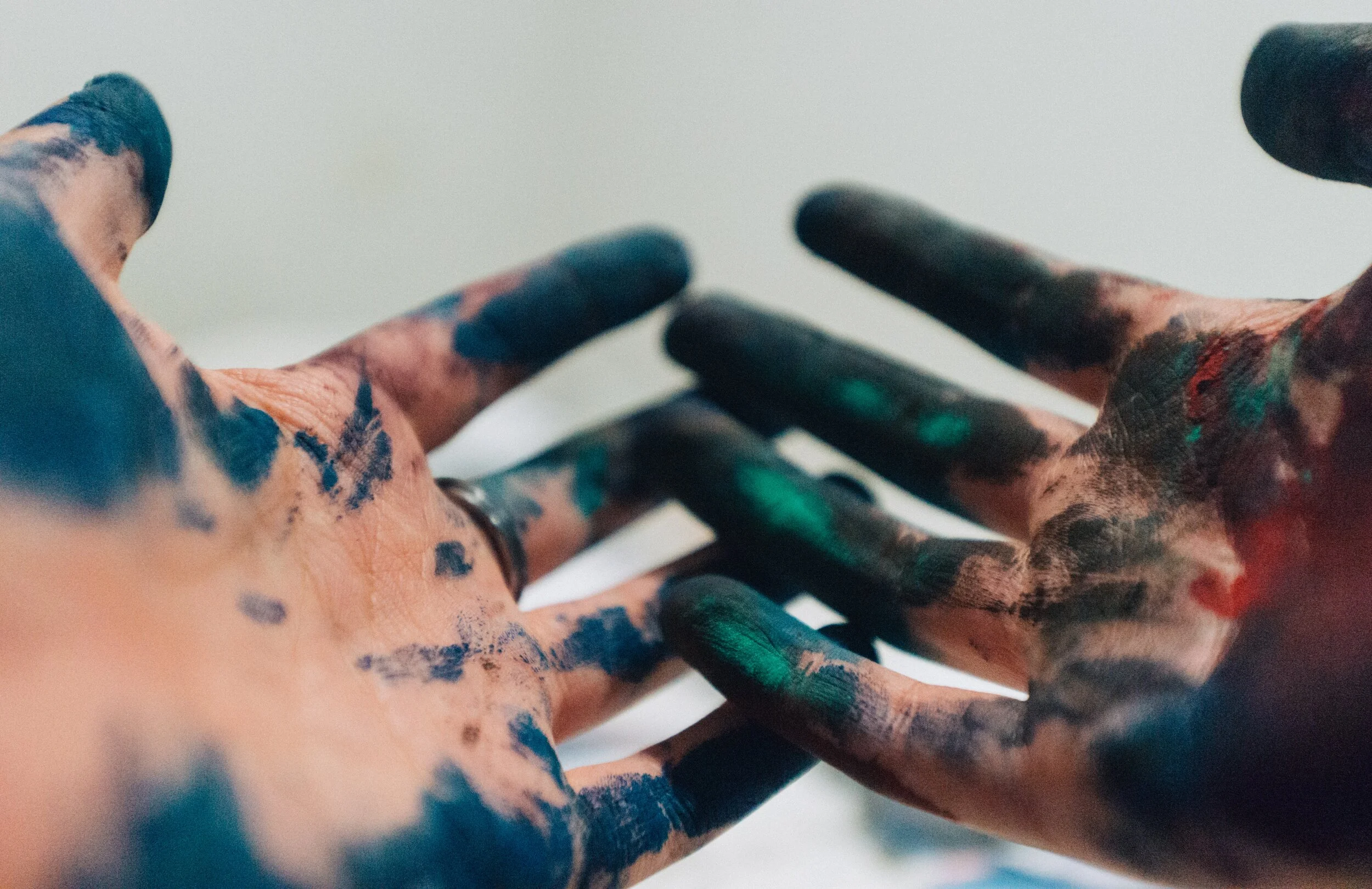There are two types of mental patterns that cause us pain and suffering.
One is being stuck in past events and circumstances, and the other is to await the unforeseen future.
Being stuck in the past means holding on to good or bad moments that no longer exist.
Clinging is a form of suffering. We relive these past moments in our mind and either feel sad that they have passed or sad that we didn’t do or say the right thing in that moment. These events or conversations replay over and over again in our minds, keeping us stuck in a non-existing place, all while missing the present moment. This mental pattern makes us sad and depressed.
Awaiting the future is another form of mental pattern that causes us to suffer. When we worry about things that have not happened, we are creating stories in our minds based on preconceived notions. We anticipate the unimaginable, and since we have no control of the unknown, we are scared. We become anxious and live in fear. Again we are stuck in a non-existing time and place.
When you start to pay attention to these patterns, you will notice that your mind wanders all day long. It’s exhausting. Not only that but coming back to the present moment can be just as painful if we are not doing exactly what we had planned for ourselves by a certain age, in our careers, financially or with our relationships. Again, these preconceived societal conditions remind us that we have not done enough and, therefore, something is wrong with us.
The freedom lies in being in the present and accepting things exactly as they are. Peace is not something the mind can understand. Happiness is not something the mind can experience.
Mental health is understanding that the nature of our mind is to solve problems and that it only exists within the concept of time. Mental health is understanding that it is natural to have thoughts but that you don’t have to be carried away by them. You can watch your thoughts as they come and go. You can be aware of your thoughts and not get caught up in them.
Being kind to yourself means being okay with having all sorts of thoughts and not being judgemental of yourself. Don’t be ashamed of yourself for having a “bad” thought. Don’t be angry that you’re not having the “good” and “positive” thoughts all the time. Don’t be critical of yourself for having “un-pure” or “strange” thoughts. If you can watch the thoughts and let them have their space – you can disidentify with them. It’s just a thought.
For example, you text your friend and do not receive a response. Right away, your mind starts going a million miles an hour. “Why didn’t he respond to my text yet? Is he mad at me because I didn’t agree with his plans yesterday? Is it because I didn’t comment on his IG picture? Is he busy talking to Kat about me?” These thought patterns are based on past experiences, and you are now bringing them into the present moment with you. But none of these thoughts belong in the present. Here is what being present would look like; “I sent the text. I’m here watching myself holding my phone, breathing, noticing that thoughts are coming up about text messages that I’ve sent to other people in the past. I’m here, though, and those people and those events are not here right now. Here comes another thought. I’ll let it go and breathe. Here comes another thought. I’m still here watching myself having these thoughts.” I’m not getting angry with myself for having these thoughts.
Being present with your thoughts can be painful sometimes, and as the saying goes, “Pain is inevitable, but suffering is optional.” There are things you can do to help you be more aware of your mental patterns. Just like your physical health requires practice to get healthy, your mental health also requires practice. This practice requires all your self-love.
Here are some suggestions that you can incorporate in your mental health practice, no matter how advanced or new you are to the journey.
READ: Educate yourself. Learn more about slowing down and being more aware of yourself.
Book recommendations:
– Untethered Soul by Michael Singer
– New Earth by Eckhart Tolle
– Radical Acceptance by Tara Brach
– Awareness by Anthony De Mello
– The 14 best mindfulness books you definitely need to read
MEDITATE: Being mindful of your thoughts starts with meditation. Use guided meditations to help you understand the fundamentals. There are videos you can watch, apps you can listen to, or books you follow.
Recommendations:
– Waking Up App with Sam Harris
– Calm App
JOURNAL: Writing down your thought process is like taking your thoughts out of your mind and putting them on paper. Once you get it on paper, it’s no longer repeating itself in your mind. Journaling is a personal practice that you should never share with anyone. No one needs to approve, judge or understand your thought process. You don’t have to explain it to anyone, nor should you ever write with the impression that someone else will be reading your journals. Don’t worry about writing well or about grammar. It doesn’t matter because it’s only for you. Make-up words if you like, or write down song lyrics if that’s what’s on repeat in your mind. Whatever it is, get it out on paper.
SHARE: Sometimes, hearing yourself say a thought out loud will give you the perspective you need. Talk to someone that you trust with no expectations. Trust that this person will not judge you. Also, know that there is nothing this person can say that will make the situation better or worse. Look at it as simply another way to get your thoughts out in the open. It’s okay if you’re not saying the “right” things or that you know that you sound crazy saying it…. that’s the point, actually. To hear yourself say the crazy things and realize that it’s your mind having a thought and it’s separate from you.
WALK: There is nothing that a walk can’t solve. “Walk it off” is literally the best way to get your body moving and releasing tension from painful thoughts. You can listen to music or podcasts while you’re walking, or you can choose to just listen to the day unfold around you.
GET CREATIVE: When you’re using your hands to be creative, you are right smack in the moment being and doing, and there’s nothing more satisfying. You’re not even paying attention to being in the present; you just are. Creating can be cooking, drawing, playing an instrument, painting, writing, knitting, baking, sewing, paper-macheing, making pottery, sculpting or anything made from you. When you’re being creative, you’re not thinking. Instead, you’re expressing yourself through a different medium, and it’s a way to tap into another realm, also known as Inspiration. When you’re creating and “in the zone,” you lose the concept of time and space; you’re just there in synchronicity with creation.
THE most important thing to remember is that you are not alone.
If anything you just read resonated with you – it’s because I/WE have suffered from an unhealthy mind on a whole new level in the past year or so. In a way, it’s also been the most cathartic time as we’ve been forced to face the pain head-on – because really when you’re confined to your home and isolated from social events, there are minimal ways to escape yourself.
You are not lonely. You long for love and finding yourself amidst the thoughts. It’s a powerful experience, and a healthy mind is part of the journey.
You don’t have to be on the journey alone.
It’s ok to ask for help.
Here is a list of resources that you may find helpful.
CMHA – Mental Health Help and Info
Coping with COVID from camh
Crisis Services – Government of Canada Support Hotlines
Wellness Together Canada – Mental Health and Substance Use Support
Hope for Wellness Helpline – Call or chat online with counselors
Looking for therapy that is all online? Mind Beacon
Not sure what to expect? Here is a blog post written by someone who tried it.
If you’re a company and looking to provide support to your employees – LifeWorks






